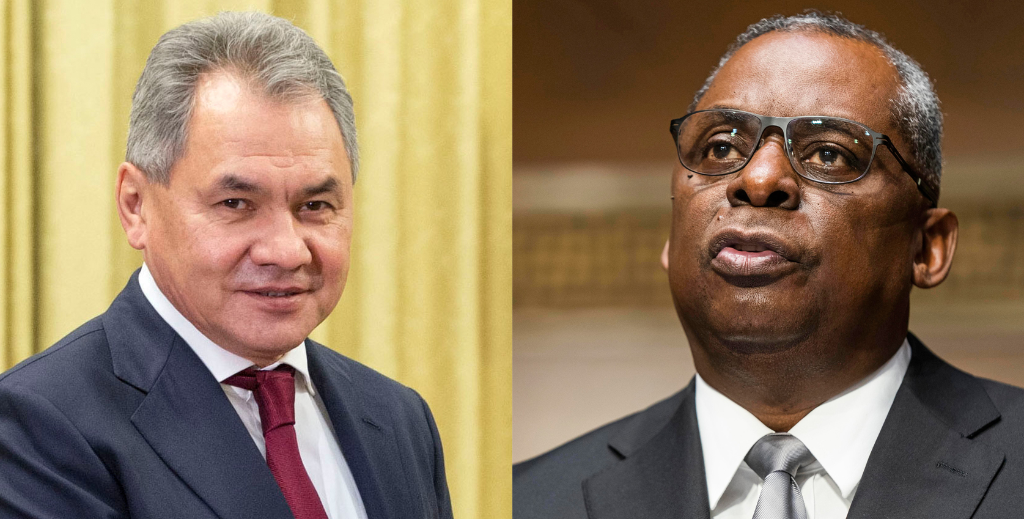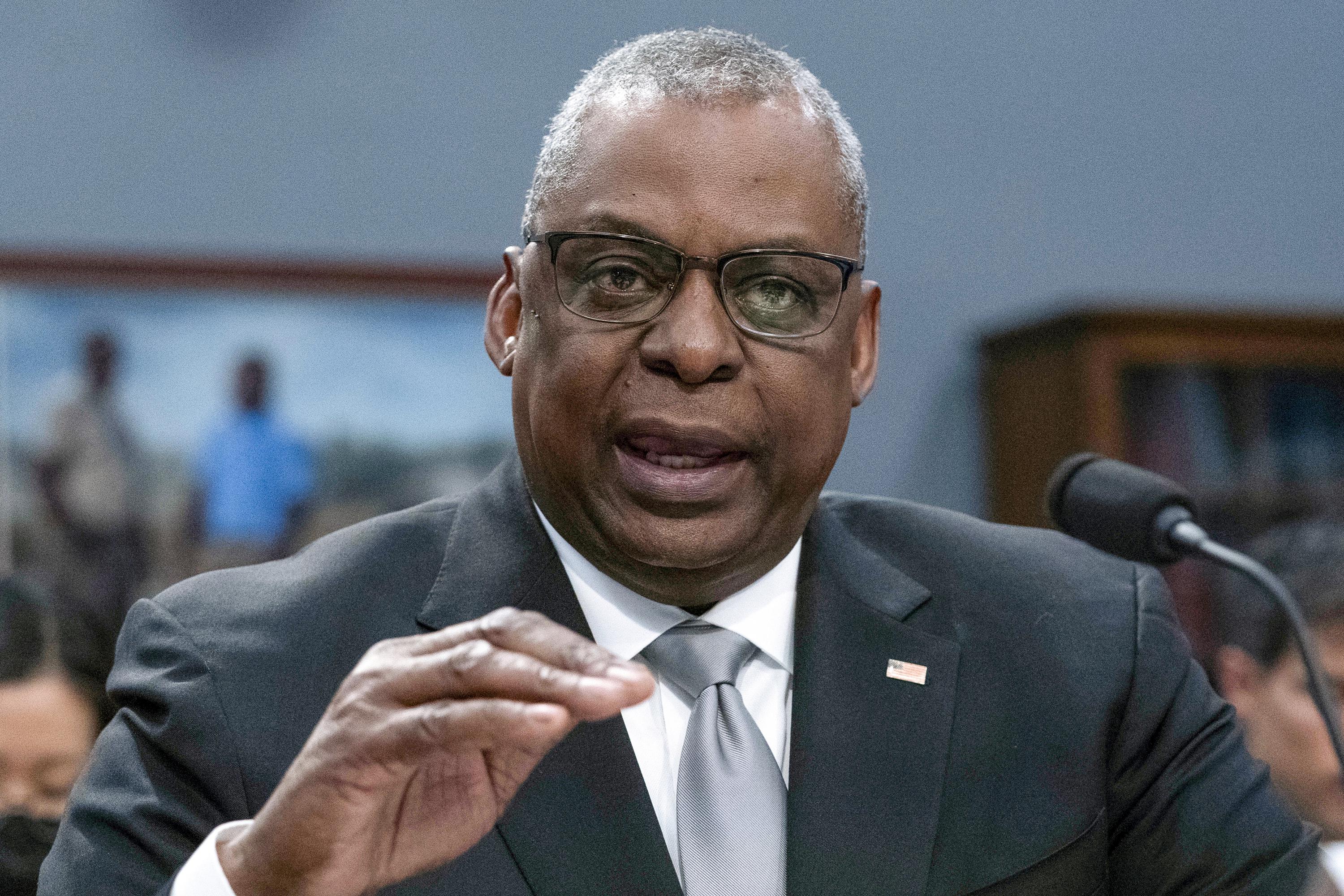US And Russian Defense Ministers Hold Infrequent Conversations About Ukraine
US and Russian defense ministers hold infrequent conversations about Ukraine in a phone call since Russia's invasion of Ukraine. According to confirmation from the two countries, US Defence Secretary Lloyd Austin and his Russian counterpart Sergei Shoigu spoke on Friday.
Author:Dexter CookeReviewer:Hajra ShannonOct 23, 20224.3K Shares548.3K Views

US and Russian defense ministers hold infrequent conversations about Ukrainein a phone call since Russia's invasion of Ukraine. According to confirmation from the two countries, US Defence Secretary Lloyd Austin and his Russian counterpart Sergei Shoigu spoke on Friday.
Both sides said they talked about what was going on in Ukraine. It's the first time they've talked since 13 May, when they talked on the phone.
After Friday's call, Pentagon press secretary Brigadier Gen. Pat Ryder said that the US was
“„Eager to keep lines of communication open. It has been since May since the two gentlemen spoke, so Secretary Austin took today as an opportunity to connect with Minister Shoigu.- Pentagon press secretary Brigadier Gen. Pat Ryder
According to a statement released by the Russian Ministry of Defense, "current concerns of world security were reviewed, particularly the situation in Ukraine."
Following their earlier contact in May, Mr. Austin strongly recommended to his colleague that they call for an immediate ceasefire; however, this suggestion was not brought up during this chat.
It follows comments from Russian President Vladimir Putin that he may be willing to use nuclear weapons in Ukraine, as well as warnings against using nuclear weapons in Ukraine from US Vice President Joe Biden.
Officials in both the United States and the United Kingdom have stated their belief that there is a low likelihood of Vladimir Putin carrying out the veiled threats that he has made.
When asked if the call had been organized as a response to this issue, Brigadier General Pat Ryder stated that although Putin's comments had been "irresponsible and concerning," the United States has seen "no indication at this time" that Russia has decided to use nuclear weapons.
Since Russia's invasion of Ukraine, already chilly relations between the United States and Russia have become considerably more strained.
Midway through the year 2021, the heads of state of both countries got together for a discussion, which was hailed as a productive move toward the improvement of their relationship. But these advancements came to a halt as tensions intensified over Ukraine.
During the months leading up to the conflict, President Obama and Vice President Biden exchanged a number of phone talks, during which the US president cautioned his Russian counterpart to refrain from further action.
Since the invasion, the leaders have not engaged in any dialogue with one another. Both men are scheduled to attend the G20 conference that will take place in Indonesia the following month, but it appears that they will not meet with one another.
In response to the conflict, the United States imposed a number of sanctions on Russia and provided major financial assistance to Ukraine's armed forces. After Russia established martial law in four recently seized regions of Ukraine, Vice President Joe Biden made the accusation earlier this week that Russian President Vladimir Putin was attempting to coerce Ukrainians into surrendering against their will.
According to what he said, the Russian president is currently in an "incredibly difficult position," and the "only tool available to him is to brutalise individual citizens in Ukraine."
Conclusion
In the past, Russia has condemned the United States and the rest of the Western world for attempting to influence the war by providing weapons and other forms of assistance to Ukraine.
When Mr. Putin was honoring the acquisition of four different regions in Ukraine last month, he gave one of his most anti-American addresses to date. In that speech, he accused the West of being "colonial."
Jump to

Dexter Cooke
Author
Dexter Cooke is an economist, marketing strategist, and orthopedic surgeon with over 20 years of experience crafting compelling narratives that resonate worldwide.
He holds a Journalism degree from Columbia University, an Economics background from Yale University, and a medical degree with a postdoctoral fellowship in orthopedic medicine from the Medical University of South Carolina.
Dexter’s insights into media, economics, and marketing shine through his prolific contributions to respected publications and advisory roles for influential organizations.
As an orthopedic surgeon specializing in minimally invasive knee replacement surgery and laparoscopic procedures, Dexter prioritizes patient care above all.
Outside his professional pursuits, Dexter enjoys collecting vintage watches, studying ancient civilizations, learning about astronomy, and participating in charity runs.

Hajra Shannon
Reviewer
Hajra Shannona is a highly experienced journalist with over 9 years of expertise in news writing, investigative reporting, and political analysis.
She holds a Bachelor's degree in Journalism from Columbia University and has contributed to reputable publications focusing on global affairs, human rights, and environmental sustainability.
Hajra's authoritative voice and trustworthy reporting reflect her commitment to delivering insightful news content.
Beyond journalism, she enjoys exploring new cultures through travel and pursuing outdoor photography
Latest Articles
Popular Articles
